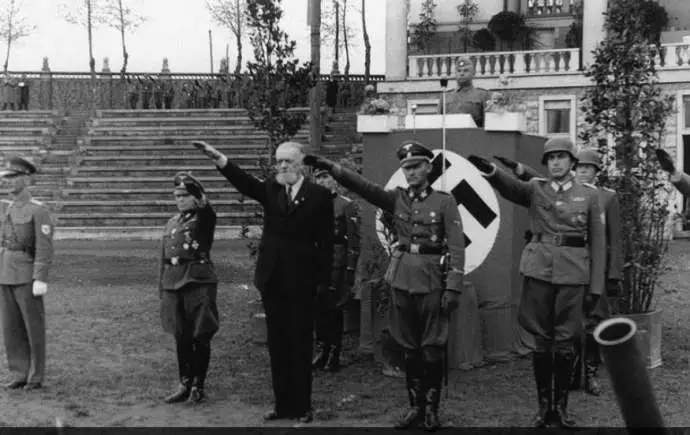STA, 10 January 2020 - The Supreme Court's controversial annulment of the guilty sentence for a WWII collaborationist general has raised questions about the legal and historical implications of the decision. While the court has ordered a retrial, the most likely outcome seems to be a termination of procedure.
The Supreme Court recently annulled the death sentence of Slovenian general Leon Rupnik (1880-1946), who collaborated with the occupying forces during World War II, on an appeal on a point of law lodged by his relative, and sent the case to the Ljubljana District Court for retrial.
Rupnik was a general in the Kingdom of Yugoslavia in WWI and later collaborated with the Fascist Italian and Nazi German occupation forces during World War II. He served as the head of the Provincial Government of the Nazi-occupied Province of Ljubljana in 1943-1945, and was also chief inspector of the Domobranci (Slovene Home Guard), a collaborationist militia.
The Supreme Court's ruling rests on procedural grounds: the court held that the military court's ruling had not been sufficiently reasoned, even under the standards applicable at the time.
The annulment means the case will now be sent into retrial, and Miha Hafner, an associate professor at the Ljubljana Faculty of Law, believes it will either be thrown out by the prosecution, or that the court will declare it cannot conduct a retrial since the accused is already dead.
Under the criminal procedure act, courts cannot try dead persons, which means that Rupnik's guilt will not be examined once again, Hafner told the STA.
The end effect of the Supreme Court decision, therefore, is that "since the procedure will be terminated whereas the previous ruling was annulled and the presumption of innocence applies [in Slovenia], Rupnik cannot legally be regarded as guilty of this criminal act," according to Hafner.
Hafner stressed, however, that the decision does not strictly mean Rupnik is rehabilitated. "If the gentleman were still alive, a retrial would start and the court of first instance would carry out the entire procedure."
Another consequence of the ruling may be that Rupnik's heirs may claim the return of property since Rupnik's property was seized by the state after the trial, said Hafner.
The ruling has earned the Supreme Court fierce criticism, in particular from the left, but the court told the STA it had no other choice than to decide on the Rupnik heir's appeal on a point of law.
All our stories on Leon Rupnik are here






